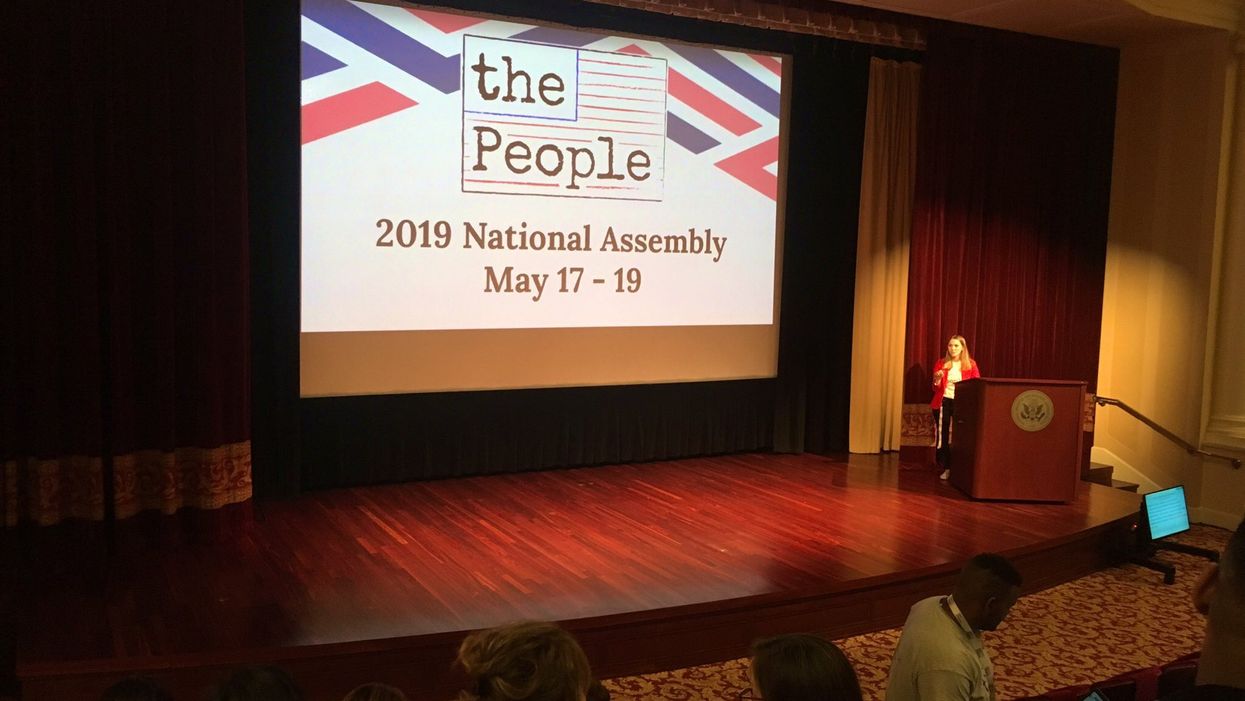"We the people." Most Americans recognize the phrase as the opening of the Constitution. But for a nascent group of democracy reformers, the phrase means even more.
The group — named simply The People — gathered for its inaugural national assembly over the weekend, its mission nothing less ambitious than realigning the machinery of democracy so that governments operate much more regularly as true representatives of "we the people."
The People was founded by three individuals who have become well known as advocates for systemic change, in different ways and from different ideologies. Katie Fahey, a 29-year-old Michigander, gained renown last year for organizing the grassroots movement that led to the Michigan referendum ending the politicized gerrymandering of the state. Liberal actor and entrepreneur Andrew Shue promotes activism among young people and gives their civic action campaigns a platform through DoSomething.org. Pollster and consultant Frank Luntz helped engineer a resurgence of conservatism in the 1990s with breakthrough thinking about Republican message discipline.
Together they selected two people from each state who spent parts of three days drafting "The Declaration of The People" — a foundational document describing how the reform group hopes to fix the broken democracy.
They convened Friday evening at the museum of the National Archives, hoping to gain inspiration by viewing the Declaration of Independence, Constitution and Bill of Rights. They were then exhorted to get to work with optimistic speeches by Fahey and Shue and a more sobering presentation from Luntz. A video of focus groups he's conducted in the past year — some of his subjects were in the audience — displayed a high degree of divisiveness and unwillingness to hear opposing political opinion.
At one point in the film, the pollster asked how many participants had lost friendships because of disagreement about the 2016 election result. Nearly everyone raised a hand, and the crowd watching murmured agreement. Luntz used this to underscore the importance of listening to one another, instead of shutting people out based on background or creed.
How well that advice was heeded will become clearer later in the week, when the convention organizers reveal the details of the organizing document adopted Sunday.




















